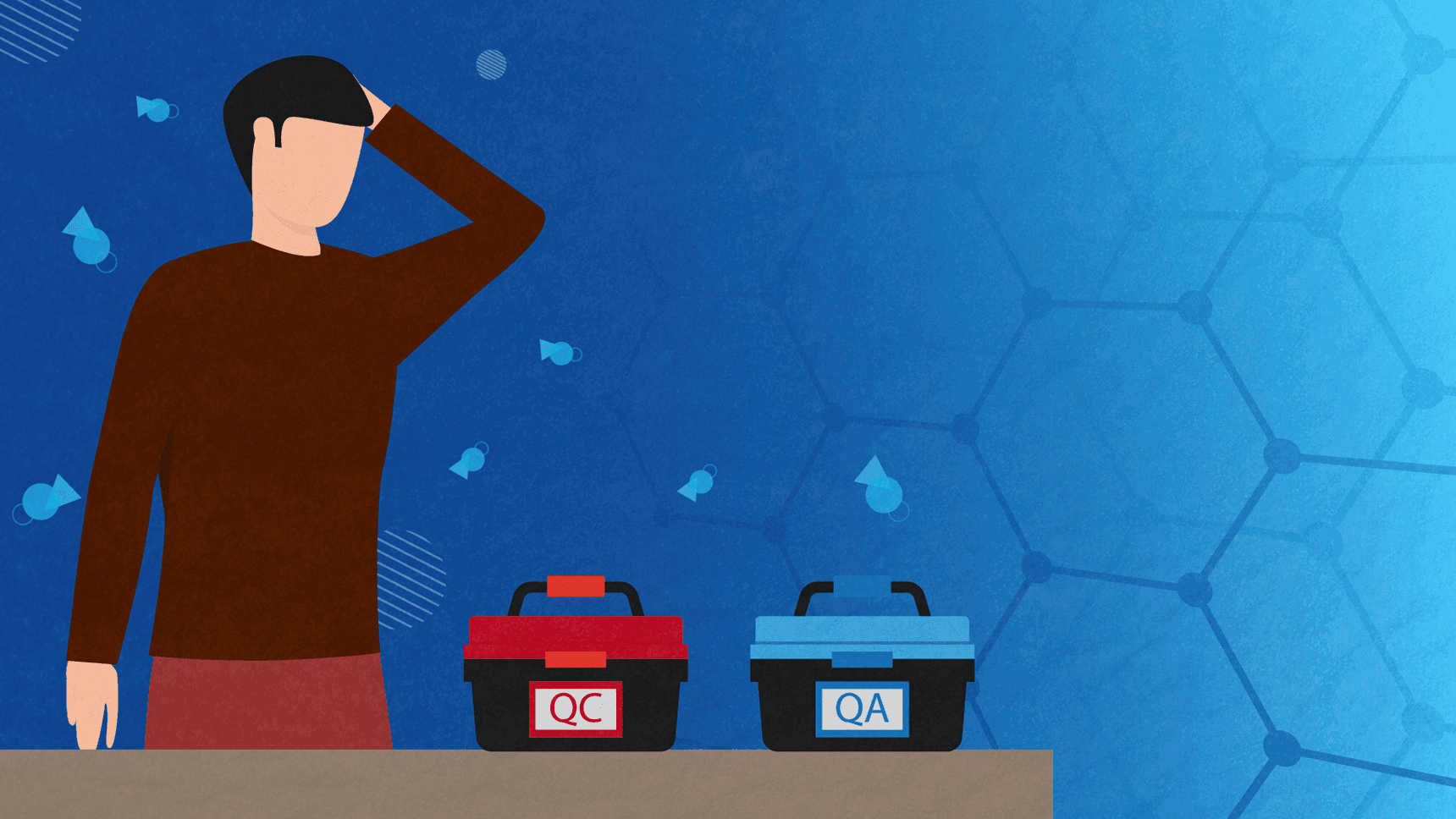Quality Assurance vs Quality Control: What is the Difference?

The understanding of QA (Quality Assurance) and QC (Quality Control) gets thrown around carelessly in our line of work. Both of these terms are often interchangeably used by junior developers and non-techy clients which tends to create confusion for everyone.
Even though this tends to look like a minor issue for people who don’t live and breathe software development, mistaking these two aspects of quality management is not something that should be ignored.
Proper and clean communication is everything in our industry. Software development is a delicate process filled with many carefully planned steps. All of these steps have a significant impact on the final outcome of the product.
To move the needle forward, it’s imperative that both clients and developers speak the same tongue.
To ensure that our future clients and hires don’t confuse these vital roles in the quality management process, we at Share IT have decided to produce a new piece for our blog that will make it clear to everyone why QA and QC shouldn’t be viewed as synonyms.
Quality Assurance vs Quality Control: Understanding Both Concepts

According to the American Society for Quality (ASQ), quality assurance is defined as a “planned and systematic process of activities implemented in a quality system so that the quality requirements and goals for a service can be fulfilled”. The same website explains quality control as an “observation technique that comes with certain activities that are there to fulfill requirements for quality”.
So, right off the bat, there is a difference between these two aspects of quality management.
Quality assurance ensures that the approaches, techniques, methods and processes that are designed for the projects are implemented correctly, while quality control focuses on the actual quality of deliverables that are being produced under these tested methods, processes, approaches, and techniques.
Quality Assurance vs Quality Control: Differences in Terms of Goals And Focus
The main and most obvious difference between these concepts boils down to the goals and focus:
-
The main goal of QA is to set procedures and processes in place that will minimize risk and prevent any predictable defects from happening.
-
The main goal of QC is to inspect the quality of everything concrete that’s done under these processes and determine if the work is meeting the quality standards of the project. QC is often used to accept or reject solutions.
Quality assurance is a process that is used to ensure that the project team is operating on “best practice principles” that prevent the creation of known bugs typical for developing similar solutions.
On the other hand, quality control looks for all the bugs at the end that tend to happen for any number of reasons and flags them so that the development team can jump back in polish all recognized issues.
As you can probably see, both of these concepts are tied to each other, but they are based on different needs. Quality assurance revolves around the creation of a roadmap for creating high-quality products, while quality control focuses on the verification of the product’s actual performance.
The former represents the system that should be adopted by an entire team, while the latter is usually executed by dedicated personnel.
Quality Assurance vs Quality Control: Additional Differences

Duration is one of them. Quality assurance requires some time to implement. It usually enters the picture at an early stage of the product development process, while quality control is something that happens later in the game; at the last quarter, to be precise.
Quality control is the final link in the chain that either makes or breaks the entire project. As mentioned above, QC people are the ones who decide if the product is good enough to be shown to clients or if it needs to be sent back for additional work.
Quality assurance and quality control teams use different tools to manage their work. QA relies on utilities for helping them do cost-benefit analysis, while QC uses tools that help them review quality of work.
Responsibility is also a factor. QA teams set the stage for the entire operation, so, in a way, QA is responsible for the ENTIRE software development cycle. Since quality control enters the picture at the very end, once the product is at least somewhat functional - QC people end up being responsible for the software testing life cycle.
If Quality Assurance is Done to Perfection, Does it Eliminate the Need for Quality Control?
Since we are now fully aware of the differences between QA and QC, let’s take a deeper dive into the subject matter. Everyone who has thought deeply about QA and QC for longer than a minute, has probably asked themselves the following question:
Does top quality QA eliminate the need for QC?
Since QA is a proactive process that is supposed to foresee possible pitfalls and make sure that all the processes and procedures set the team up for success, does QC even need to happen if the QA really locks everything down?
The short answer is: yes, quality control still needs to happen. Here’s why:
Quality assurance doesn’t guarantee anything about the overall quality of the end product. The responsibility of quality assurance is to create solid processes and ensure that they are being followed. QA focuses on the operations, not the actual quality of deliverables.
On the other hand, quality control doesn’t guarantee quality either. It measures it and maps out the elements that could be improved to the overall quality goal of a product.
Both QA and QC are instruments of quality management. They are pieces in a bigger puzzle that help the developers create great products and meet expectations of the customers.
Final Thoughts
Thank you for taking the time to read this article in its entirety. As you can probably see from everything written above, both quality assurance and quality control have their unique role to play in quality management. They are equally important for the overall success of a project. At Share IT, we do both QA and QC to ensure the end results are optimal. In addition, we dedicate enough time to educate our clients and adjust our procedures to best fit their needs.
If you have any additional questions about this topic that you would like to answer for you, feel free to share your thoughts in the comments section below. If you have a project in mind that you would like to discuss, reach us at Share IT.
Related readings:
Why is Software Project Estimation so Difficult? The Importance of Service Delivery Management Web Development Services: How to Choose the Right Experts? Looking to Outsource a SharePoint Developer? Here's What to Pay Attention to